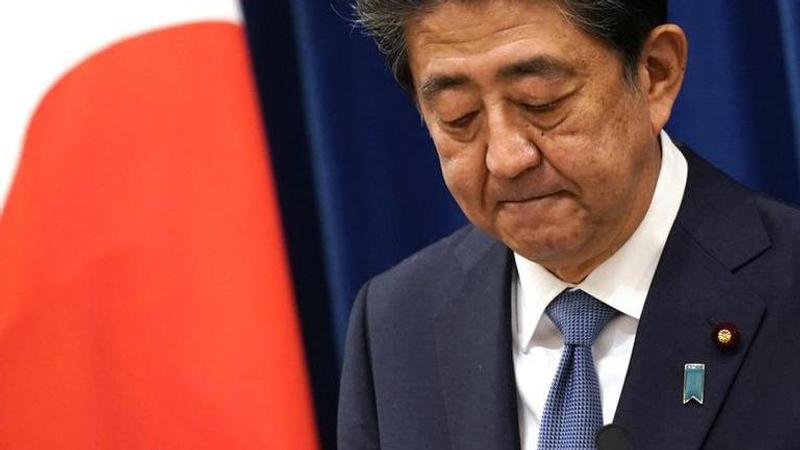Published 22:38 IST, September 11th 2020
Japan's Abe seeks preemptive strike capacity in policy shift
Prime Minister Shinzo Abe said Friday that Japan should make a major change to its defense policy by developing a first-strike capability on enemy bases to defend against imminent attacks amid rising missile and nuclear threats in the region.

Prime Minister Shinzo Abe said Friday that Japan should make a major change to its defense policy by developing a first-strike capability on enemy bases to defend against imminent attacks amid rising missile and nuclear threats in the region.
Abe, who is stepping down next week for health reasons, said the ability to intercept missiles after they are launched may not be enough and Japan should seek greater deterrence. He said the new government will compile a revised defense policy by the end of the year.
The ability to carry out preemptive strikes would be a significant shift in the defense policy Japan has followed since the end of World War II. Japan’s postwar constitution limits the use of force to self defense.
Abe, a defense hawk, said Japan is seeking to build up its missile deterrence capability within constitutional limitations, though he did not say how that can be possible.
“Can we protect the people’s lives and their peaceful livelihoods just by stepping up our missile intercepting capability?” Abe said in a statement. Japan must show its “unshakable commitment and capability” with an ability to defend its territory and peace as a sovereign nation, he said.
Abe made the comments after members of the National Security Council, including Chief Cabinet Secretary Yoshihide Suga, who is seen as Abe's most likely successor, agreed to pursue the proposal.
Defense experts in his governing Liberal Democratic Party earlier compiled a report urging Japan to develop a preemptive strike ability because of North Korea's missile and nuclear development and China's increasingly assertive activity in the East and South China Seas.
Abe's push for the capability intensified after Defense Minister Taro Kono scrapped a plan to deploy two Aegis Ashore land-based interceptors due to technical reasons.
Japan has been increasingly purchasing costly missile defense systems and fighter jets from the United States.
Since taking power in 2012, Abe has expanded Japan’s defense budget and capabilities and has sought to expand its role in international peacekeeping and in the Japan-U.S. security alliance. In 2015, he adopted a new interpretation of the constitution's war-renouncing Article 9 to include the United States in its self defense in a concept of so-called collective self defense.
Allowing strikes on enemy territory would require Japan to have long-range weapons including cruise missiles such as U.S.-developed Tomahawks and other highly advanced military equipment.
A revision of the defense policy allowing such weapons, however, could be a challenge. Even some hawkish defense experts say allowing a preemptive strike capability within Japan's constitutional limitations would be difficult.
Such capabilities would also be costly, and Japan would have to rely on the U.S. for surveillance, former Defense Minister Shigeru Ishiba said.
“I don’t think Japan by itself can decide whether to (launch) missiles against enemies or their territories under the Japan-U.S. alliance," Ishiba told reporters Friday.
The change could also face resistance from the governing party’s junior coalition partner, Komeito, a Buddhist-backed dovish group.
Updated 22:38 IST, September 11th 2020




